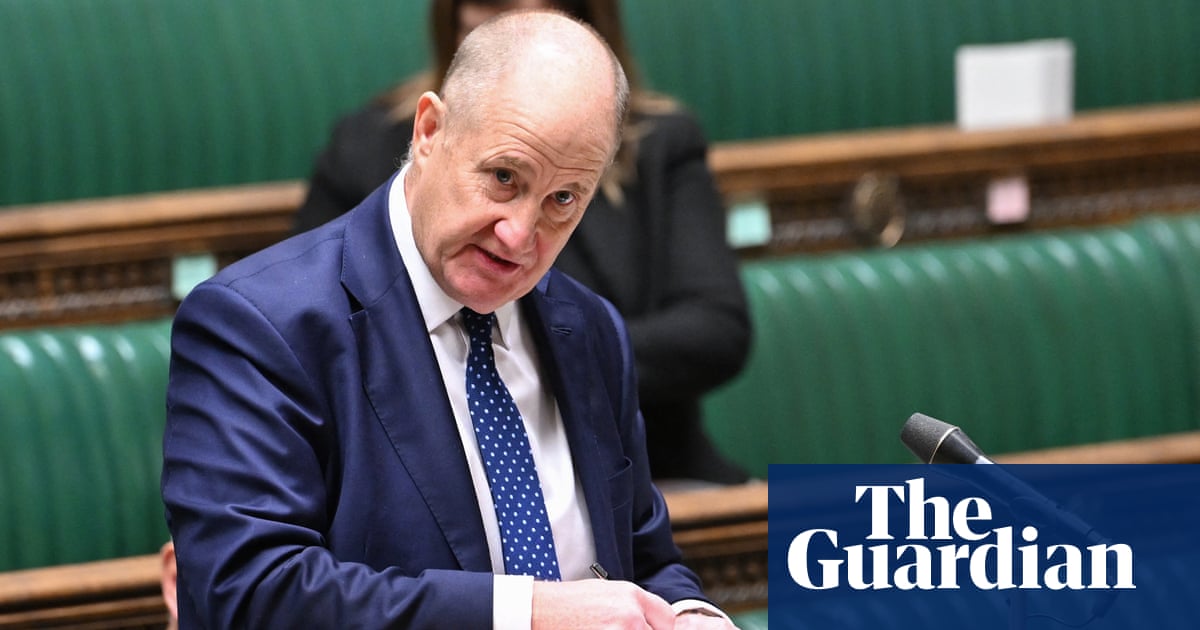
Ministers are pressing ahead with plans to start winding down Covid testing and payments for isolation from next week to save more than £10bn, despite health chiefs warning that this could hamper crucial research into antiviral treatments.
No 10, the Treasury and the health department will decide this week on a “living with Covid strategy” due to be unveiled on Monday, which will involve phasing out free Covid testing and all but ending the tracing system.
Whitehall sources say the Treasury is driving efforts to reduce costs from an estimated annual £15bn, with an opening suggestion of cutting the budget by more than 90%, to £1.3bn. It is unclear whether the changes will apply to England only or UK-wide.
Under plans for the “living with Covid” strategy, from Monday 21 February people will no longer be advised to test regularly if they are asymptomatic. From this date the government is also likely to end support payments worth £500 to £750 for people isolating, as well as routine contact tracing.
Boris Johnson previously announced plans to end mandatory isolation for people who test positive from next week.
From 31 March the government is likely to end free PCR testing for people with symptoms, apart from in hospitals and high-risk settings and for more than 1 million of the most vulnerable people.
Those with symptoms are expected to be advised to take lateral flow tests (LFTs), although free tests may be limited to older age groups. The government is also likely to stop recommending LFTs on days five and six after a positive test, and to end free LFTs for asymptomatic testing.
However, the government’s public health experts are concerned that a £1.3bn settlement would be insufficient to cover the costs of free LFTs for key groups, the Guardian understands.
They fear slashing the testing budget could be counterproductive and damage a planned move to a “test to treat” strategy, where the most vulnerable people are identified and treated with antiviral dugs in an effort to cut deaths.
A growing repertoire of antiviral medicines, including molnupiravir and paxlovid, are being used on patients who have contracted Covid. They work by disrupting a virus’s ability to replicate inside an infected cell.
In particular, government health officials worry that such a steep cut in the budget could harm the work of the Panoramic study examining widening the cohort of those eligible for antivirals from at least 1.3 million to between 5 million and 30 million people. This research relies on enough vulnerable and older people testing positive for Covid.
The government has said it wants to move to a scenario where antivirals are given to all those who are most at risk of severe disease, with significant stocks of drugs already paid for.
One Whitehall source said a large reduction in community testing in the coming months could harm the ability of the Panoramic trial to continue.
Another Whitehall health source said Covid antivirals were one of the main tools for “learning to live with Covid” by helping take pressure off the NHS. “If [the Treasury] basically put this trial in the bin, it’s very shortsighted,” they said.
The Guardian revealed last week that the Treasury was pushing to phase out free Covid testing. Officials will this week send to No 10 and the Treasury the costs of continuing free LFTs for all symptomatic people or reducing it to various cohorts such as vulnerable or older age groups.
There is likely to be a ministerial Quad meeting on Wednesday, a call with chief medical officers from the four nations of the UK on Thursday, finalisation of the plan on Friday and a Covid-O meeting on Sunday. The strategy, fronted by Boris Johnson, is expected to be unveiled on Monday.
The move to cut funding for free testing has already caused consternation in the devolved administrations. On Monday the SNP called on the UK government to confirm that it would continue to fund Covid testing in Scotland.
Martyn Day, the SNP’s Westminster health spokesperson, said: “Any changes to Covid testing must be guided by expert public health advice through the chief medical officers … Scotland’s more safe and cautious approach to the pandemic has seen better outcomes. We must continue to be guided by the scientific evidence, and not by Downing Street’s concerns over the number of letters of no confidence in Boris Johnson from Tory MPs.”
Asked on Monday about whether he was planning to scrap free PCR tests, Johnson said: “We’ll continue to work with our colleagues in Scotland, but I believe the similarities in our approach vastly outweigh the differences.”
A government spokesperson said: “We’ve previously set out that we’ll keep the provision of free testing under review as the government’s response to Covid-19 changes. No decisions have been made on the provision of free testing. Everyone can continue to get free tests and we are continuing to encourage people to use rapid tests when they need them.
“Testing continues to play an important role in helping people live their day-to-day lives, keep businesses running and keep young people in school.”
Living with Covid
Ministers’ plans, according to sources, include:
21 February Scrap guidance recommending regular asymptomatic testing with lateral flow tests; testing in education settings; test-and-trace support payments; tracing close contacts of positive cases.
Week of 21 February Scrap mandatory isolation for positive Covid cases, though advice to stay home remains.
31 March Scrap free LFTs for asymptomatic people; free PCR testing for all but vulnerable people and those in hospitals and high-risk settings; recommendation of day five and six LFTs for those who have tested positive. Recommend free LFTs for everyone with Covid symptoms, or only older/vulnerable cohorts.












